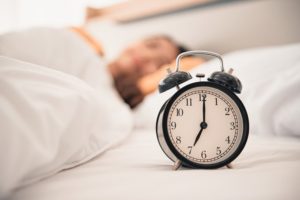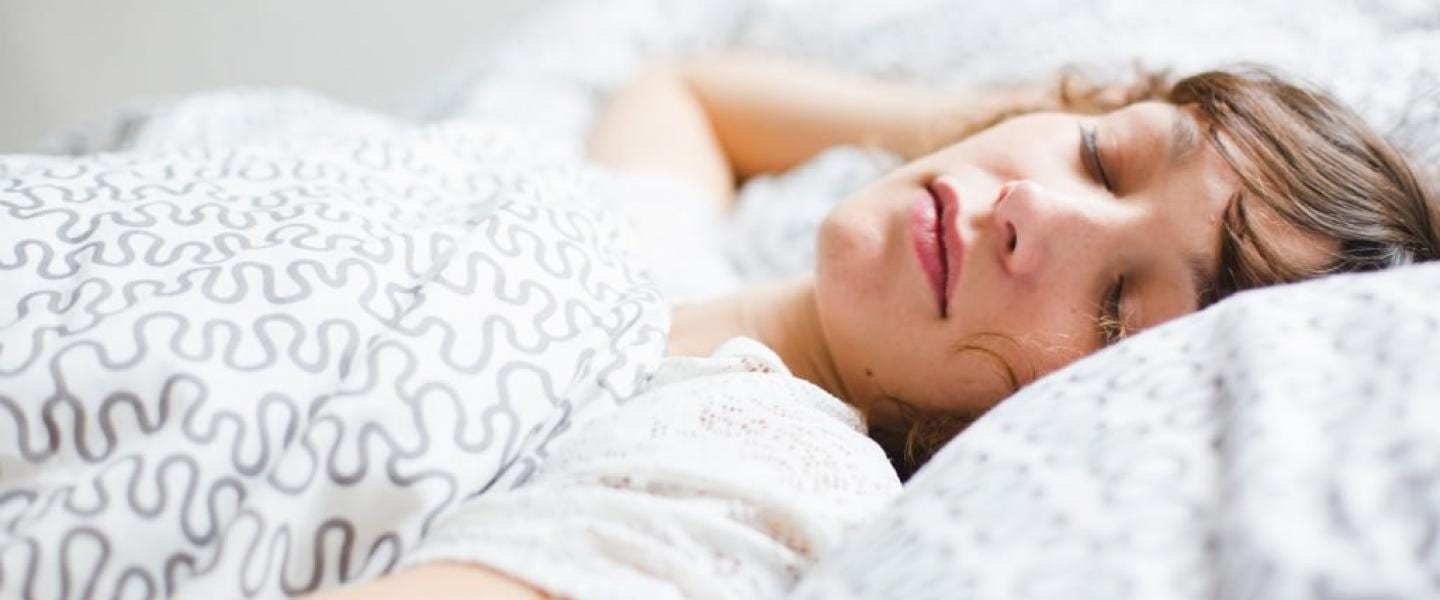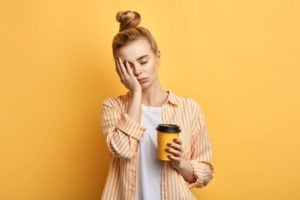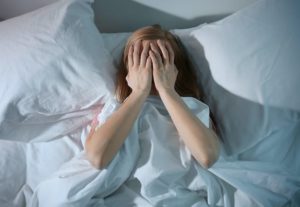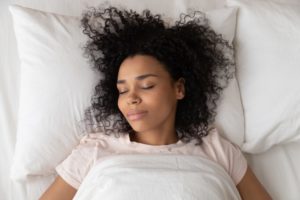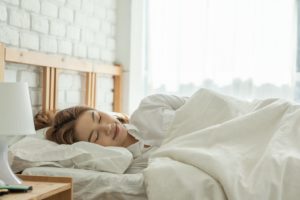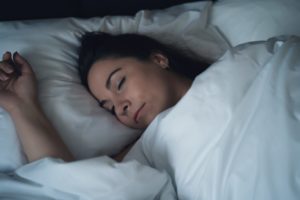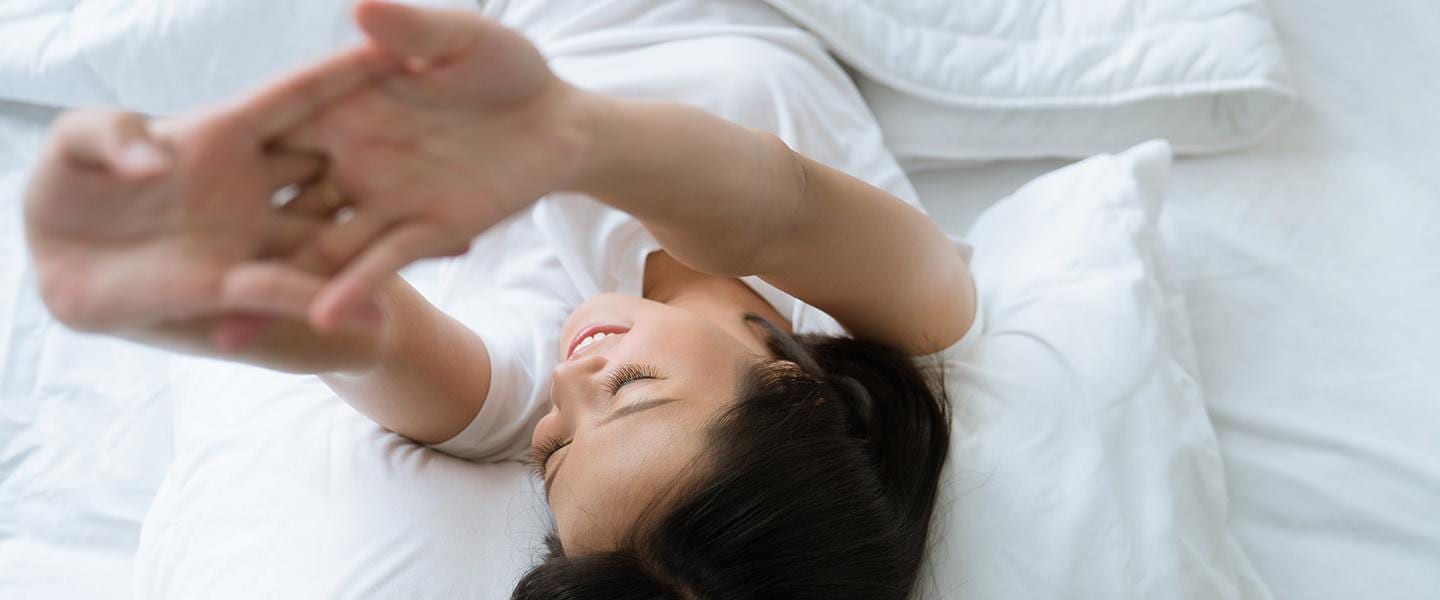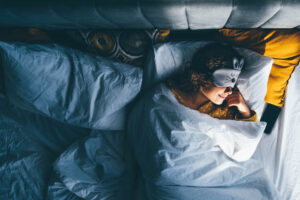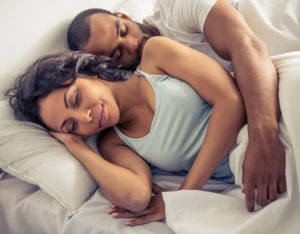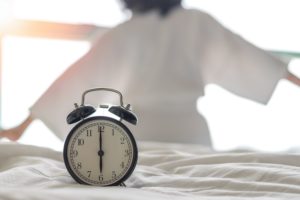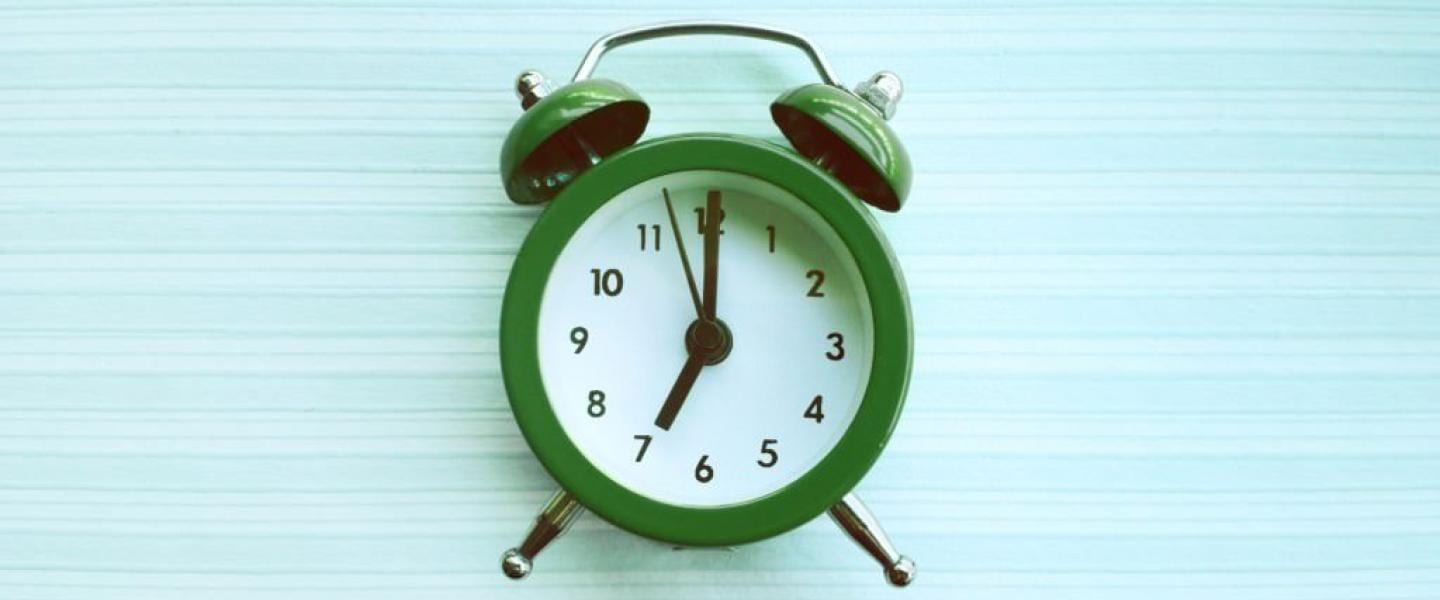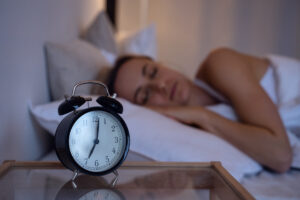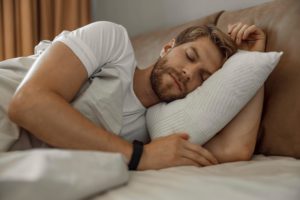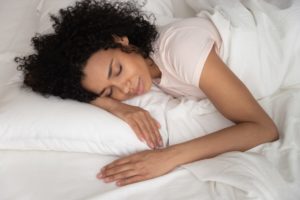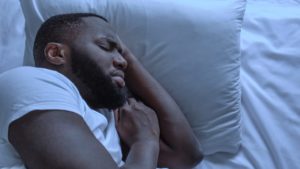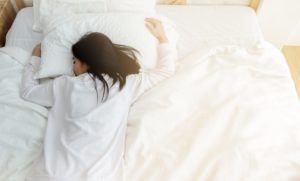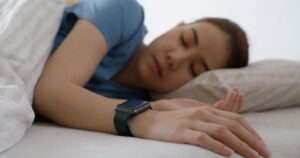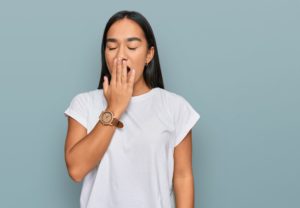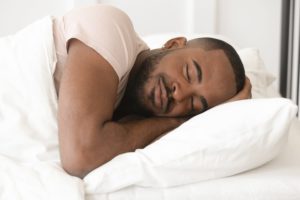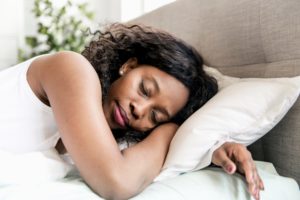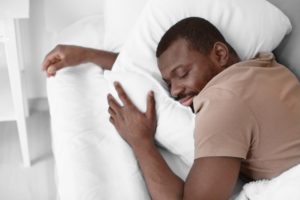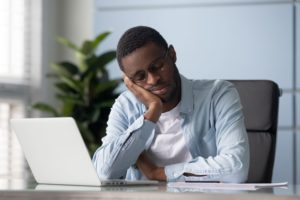Sleep Inertia: How to Combat Morning Grogginess
- Sleep inertia is the groggy feeling upon waking, caused by abrupt disruption of sleep.
- Sleep inertia can briefly impair cognitive and physical function before fading as you gain alertness.
- Consistent wake-up times, natural light exposure, and gentle alarms can help reduce morning sleep inertia.
- A sleep doctor can determine if a sleep disorder is causing more severe sleep inertia.
Sleep is imperative to health and wellness. However, some people experience residual grogginess upon waking, even after receiving adequate sleep. This phenomenon is known as sleep inertia, and is particularly common in those with alternative sleep schedules. Sleep inertia can negatively impact essential cognitive functions, such as reaction time and decision making.
We highlight the causes, symptoms, and diagnostic criteria of sleep inertia, and how to mitigate its negative effects and get quality sleep.
Is Your Troubled Sleep a Health Risk?
A variety of issues can cause problems sleeping. Answer three questions to understand if it’s a concern you should worry about.
What Is Sleep Inertia?
Sleep inertia is the feeling of grogginess, disorientation, drowsiness, and cognitive impairment that immediately follows waking . The biological reason for sleep inertia is unknown. However, researchers hypothesize that sleep inertia is a protective mechanism that helps maintain sleep during moments of unwanted wakings.
Regardless of its biological basis, sleep inertia can impact the safety and well-being of people who work long, frequently changing hours or shift work. Medical professionals who work rotating shifts or are on call regularly have a significant decrease in cognitive alertness and performance. At least 16% of U.S. employees engage in shift work . As a result, these workers might experience slowed reaction times and decreased cognitive alertness at work that increase the chance of work-related injuries.
Symptoms of Sleep Inertia
The most common symptom of sleep inertia is grogginess, but people are also likely to experience impaired cognitive ability, visual attentions, and spatial memory. The symptoms of sleep inertia are most noticeable upon waking from a lengthy sleep period or naps over 30 minutes , but fade over time.
Causes of Sleep Inertia
The exact cause of sleep inertia is unknown, but there are three common theories explaining sleep inertia.
Some research suggests that sleep inertia is caused by an increase in delta waves in the posterior part of the brain. Delta waves, or slow waves, are most commonly seen in the non-rapid eye movement (NREM) stage of sleep. Delta waves are more likely to increase after periods of sleep deprivation or loss. Sleep inertia may occur when the brain has not yet reduced delta waves in preparation for waking up, or is suddenly awoken during NREM sleep.
Adenosine, a nucleic acid compound found in the brain, plays a pivotal role in sleep and wakefulness. Upon waking, adenosine levels should be low. Research suggests that sleep inertia could be caused by high levels of adenosine upon waking.
The body’s blood flow to the brain follows a pattern corresponding to sleep cycles, increasing or decreasing depending on the stage of sleep. Chronic fatigue syndrome (CFS) is linked to reduced cerebral blood flow. CFS symptoms are similar to sleep inertia, and it may be that a reduction in blood flow upon waking results in sleep inertia symptoms. However, more research needs to be done to support this concept.

How Long Does Sleep Inertia Last?
Sleep inertia generally lasts for 15 to 60 minutes , but may last for up to a few hours after waking.
Sleep inertia itself is not a sleep disorder, but people with certain sleep disorders are more likely to experience more severe or longer lasting sleep inertia. If you notice that you are feeling groggy or fatigued throughout the day, consider talking to your doctor about taking part in a sleep study, called polysomnography. A sleep study can help your doctor determine if any underlying disorders are impacting your sleep and causing more severe sleep inertia.
Keeping a sleep journal may also provide your doctor insight into your sleeping patterns. Record times you sleep, as well as how you feel when you wake and any symptoms you experience. It can also be useful to check in with a partner for insight into your sleep and wake patterns. If you can pinpoint a trigger for your sleep inertia, like excessive caffeine use or inconsistent sleeping patterns, it may help to make lifestyle adjustments and record any change.
How To Get Rid of Sleep Inertia
Although the exact cause of sleep inertia is unknown, there are ways you can adjust your lifestyle to facilitate better sleep and increase wakefulness. Additionally, engaging in a good sleep hygiene routine can help you obtain better sleep and may prevent sleep inertia.
- Pick the right bedding: Find the best mattress and bedding to feel comfortable at night. Research has found that those who upgraded their mattress and bedding experienced less pain and an increase in sleep quality.
- Avoid alcohol and smoking: Drinking alcohol in excess can impact the quality of your sleep. Smoking has been associated with sleeping problems, including trouble falling asleep and low sleep satisfaction.
- Napping: Sleeping for a short period of time during a break at work may help reduce sleep inertia. Naps are a common way people fit extra sleep into their day. Make sure your naps are no longer than 30 minutes, as this may increase your risk of experiencing sleep inertia and difficulty falling asleep at night.
- Caffeine intake: Reaching for a cup of coffee or energy drink may help you feel more awake in the morning. Caffeine works by blocking adenosine receptors in the brain, which increases wakefulness and alertness. However, too much caffeine may negatively impact your sleep.
- Light restriction: Keeping your sleep and wake cycles in alignment with the natural rise and fall of the sun may help reduce sleep inertia. Studies show that artificial light can impact the body’s natural circadian rhythm and disrupt sleep when exposed later in the day. Adjusting the light in your bedroom with blackout curtains may help you get more restful sleep.
- Temperature adjustments: Sleeping in a room that is too hot prevents your body from cooling before sleep, resulting in fatigue. Try adding a quiet fan to your room or sleep with lighter, breathable blankets. During summer, consider investing in a small air conditioner unit or lightweight pajamas.
- Gentle waking: Many alarm clocks can be jarring and loud, which could exacerbate feelings of confusion or grogginess upon waking. Try opting for a smart alarm clock app that registers when you are in a light state of sleep. Or, try a sunrise alarm that wakes you with gradually increasing light and gentle sounds.

Still have questions? Ask our community!
Join our Sleep Care Community — a trusted hub of product specialists, sleep health professionals, and people just like you. Whether you’re searching for the perfect mattress or need expert sleep advice, we’ve got you covered. Get personalized guidance from the experts who know sleep best.
References
10 Sources
-
Burke, T. M., Scheer, F., Ronda, J. M., Czeisler, C. A., & Wright Jr., K. P. (2015). Sleep inertia, sleep homeostatic and circadian influences on higher-order cognitive functions. Journal of Sleep Research, 24(4), 364–371.
https://pubmed.ncbi.nlm.nih.gov/25773686/ -
Hilditch, C. J., & McHill, A. W. (2019). Sleep inertia: Current insights. Nature and Science of Sleep, Volume 11, 155–165.
https://pubmed.ncbi.nlm.nih.gov/31692489/ -
Basner, M., Dinges, D. F., Shea, J. A., Small, D. S., Zhu, J., Norton, L., Ecker, A. J., Novak, C., Bellini, L. M., & Volpp, K. G. (2017). Sleep and alertness in medical interns and residents: An observational study on the role of extended shifts. Sleep, 40(4), zsx027.
https://pubmed.ncbi.nlm.nih.gov/28329124/ -
Bureau of Labor Statistics. (2019, September). Job Flexibilities and Work Schedules Summary. (USDL-19-1691).
https://www.bls.gov/news.release/flex2.nr0.htm -
Ruggerio, J. S., & Redeker, N. S. (2014). Effects of napping on sleepiness and sleep-related performance deficits in night-shift workers: A systematic review. Biological Research for Nursing, 16(2), 134–142.
https://pubmed.ncbi.nlm.nih.gov/23411360/ -
Marzano, C., Ferrara, M., Moroni, F., & De Gennaro, L. (2011). Electroencephalographic sleep inertia of the awakening brain. Neuroscience, 176, 308–317.
https://pubmed.ncbi.nlm.nih.gov/21167917/ -
Van Dongen, H. P., Price, N. J., Mullington, J. M., Szuba, M. P., Kapoor, S. C., & Dinges, D. F. (2001). Caffeine eliminates psychomotor vigilance deficits from sleep inertia. Sleep, 24(7), 813–819.
https://pubmed.ncbi.nlm.nih.gov/11683484/ -
Hajak, G., Klingelhöfer, J., Schulz-Varszegi, M., Matzander, G., Sander, D., Conrad, B., & Rüther, E. (1994). Relationship between cerebral blood flow velocities and cerebral electrical activity in sleep. Sleep, 17(1), 11–19.
https://pubmed.ncbi.nlm.nih.gov/7910702/ -
Hilditch, C. J., Dorrian, J., & Banks, S. (2016). Time to wake up: Reactive countermeasures to sleep inertia. Industrial Health, 54(6), 528–541.
https://pubmed.ncbi.nlm.nih.gov/27193071/ -
Chang, A. M., Santhi, N., St Hilaire, M., Gronfier, C., Bradstreet, D. S., Duffy, J. F., Lockley, S. W., Kronauer, R. E., & Czeisler, C. A. (2012). Human responses to bright light of different durations. The Journal of physiology, 590(13), 3103–3112.
https://pubmed.ncbi.nlm.nih.gov/22526883/


